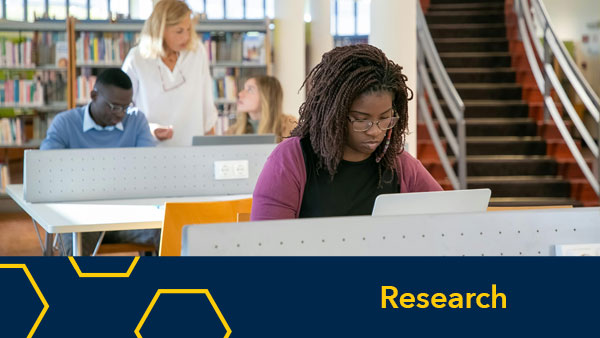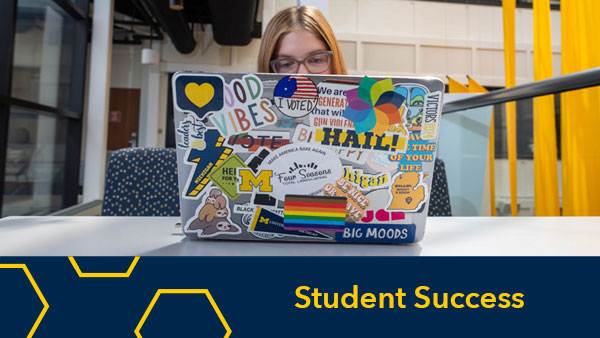Eric Joyce, Marketing Specialist
@ericmjoyce
“Innovation is ideally done in partnership with learners, that is why we brought you here today.”
Rachel Niemer, Director of the Gameful Learning Lab
Students interested in shaping and enhancing the future of online learning gathered earlier this week for a Student Design Jam hosted by Academic Innovation in partnership with Coursera, a leading online education company and learning platform for many of U-M’s Massive Open Online Courses (MOOCs). The event gave students an opportunity to share their ideas as current learners and build prototypes for new solutions to help digital platforms better meet the individual needs of lifelong learners.
Rick Levin, CEO of Coursera and former president of Yale University, shared remarks regarding the mission of Coursera and the impact of digital education for learners across the globe.
“[We want to] create the best possible learning experience…which maximizes learning outcomes,” Levin said.

Kapeesh Saraf, Director of Product Learning Experiences at Coursera, followed Levin’s remarks by discussing the opportunities and challenges of the digital learning landscape. To further enhance personalization in online learning and help inform Coursera’s product development roadmap, he and Coursera asked students to address three challenges currently facing learners:
1.) How can we connect learners to the right course, based on their goals and what they already know?
2.) Once a learner is enrolled in a course, how can we customize the course for their specific needs?
3.) How can we identify if a learner is struggling, and what sorts of help can we provide them?
 Students explored and discussed these real-world challenges in small teams sharing ideas with representatives from Coursera and Academic Innovation for collaborative feedback. Teams later transformed ideation into prototypes by wireframing their new innovations designed to enable personalized experiences for learners.
Students explored and discussed these real-world challenges in small teams sharing ideas with representatives from Coursera and Academic Innovation for collaborative feedback. Teams later transformed ideation into prototypes by wireframing their new innovations designed to enable personalized experiences for learners.
At the conclusion of the evening, representatives from each team shared their solutions. Students suggested mechanisms to match learners with recommended courses by answering questions, assessing current competencies or identifying their current job titles. Other teams explored ways course content may be tailored for learners depending on their individual learning styles and designed pathways to help learners succeed by setting goals and sharing resources as motivational tools.

The University of Michigan has reached more than 5 million lifelong learners worldwide since joining Coursera as a founding partner in 2012. The university is also nearing the launch of its 100th MOOC as Academic Innovation continues to shape the future of learning and redefine public residential education by unlocking new opportunities and enabling personalized, engaged and lifelong learning for the U-M community and learners around the world.
What ideas do you have to enhance personalized learning or improve the online education experience? Submit your ideas, recommendations or experiences to our Ideas2017 Challenge as we look to collect more than 2,017 responses to shape the future of learning at U-M by the university’s Bicentennial Celebrations in September 2017.
Ideas2017 is one component of the Academic Innovation Initiative, which President Schlissel and Provost Pollack charged the Office of Academic Innovation to steward. Through the Academic Innovation Initiative, we will “consider how U-M will lead the way for higher education through the information age and further strengthen our impact on society.” We invite you to participate in this initiative by attending one of our upcoming events and subscribing to our newsletter to learn more Academic Innovation and the work of U-M’s faculty innovators.



